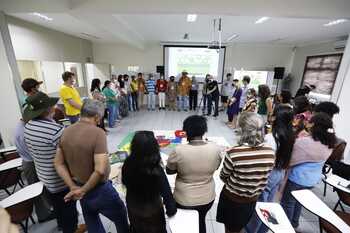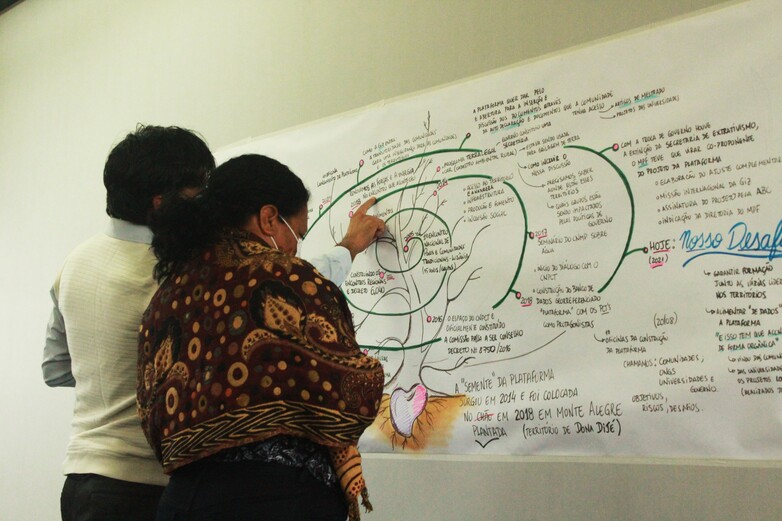Living lands: Promoting human rights for traditional peoples and communities in Brazil
Agenda 2030 – Contribution to the implementation of the "leave no one behind" principle
-
Commissioning Party
German Federal Ministry for Economic Cooperation and Development (BMZ)
-
Country
-
Lead executing agency
More
-
Overall term
2021 to 2024
-
Products and expertise
Protection and sustainable use of tropical forests (Biodiversity and climate)

Context
In Brazil, there are 28 segments of Traditional Peoples and Communities (PCT) recognised by legislation. These include indigenous peoples, riverside communities, Quilombolas and agroextractive communities. Dealing with the different land status of territories of PCT poses a major challenge.
A lack of reliable data addressing the occupation of traditional territories, the cultural aspects and the contribution of PCTs to long-term development, is one of the reasons why the state has difficulties conducting claims and carrying out effective action to promote the rights of traditional peoples and communities. Since 2018, the Federal Public Prosecutor's Office (MPF) has been working with the National Council of Traditional Peoples and Communities (CNPCT) to develop a digital tool called "Plataforma de Territorios Nacionais” (Traditional Territories Platform), which is in the process of being set up for use by PCTs themselves.
Objective
Traditional peoples and communities are being empowered to protect their human rights in conjunction with the relevant Brazilian institutions.

Approach
The project is being implemented in Brasilia, the national headquarters of the MPF, and in the three pilot regions Mato Grosso, Goias and Mato Grosso do Sul. It promotes the technological development of the platform and builds capabilities to ensure the effective management and use of the platform as a multi-stakeholder initiative. Organisations, leaders and representatives of PCTs are supported in using the platform and networking strategically. The design and implementation of the platform is the "Leave No One Behind" principle enshrined in the 2030 Agenda. All project activities apply a gender-sensitive approach.
Last update: November 2023





